Want to exercise, don’t ask for help
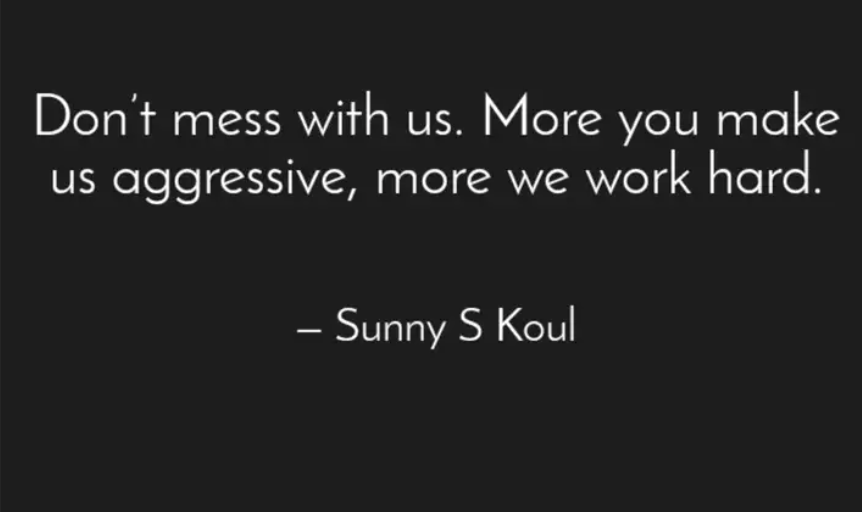
If I had to make a request, it would be only one: Don’t mess with us
Whenever a new grassroots movement emerges, observers accuse it of "lack of clear demands." Why don’t protesters summarize their goals into a coherent solution? Why are there no representatives who can negotiate with the authorities and advance a specific agenda through institutional channels? Why can’t these movements express themselves in familiar language, with appropriate etiquette?
Too often, these are just disingenuous words from those who want the movement to be limited to well-behaved appeals. They accuse rebels of being "irrational or incoherent" when they pursue an agenda they are unwilling to acknowledge.
Compare the People’s Climate March in 2013 and the Baltimore uprising in April 2015. During the Climate March, 400,000 people united behind a simple message but did so little protest that the authorities did not even have to make a single arrest. Have 400,000 people ever protested anywhere in New York and no police arrested anyone? That’s because protests don’t just serve as pressure valves, but as active reassurance — as a way to reduce friction between protesters and the order they oppose.
Many people praised the climate marches while deriding the Baltimore uprising as irrational, unconscionable, and ineffective; however, the climate marches had little concrete impact, while the Baltimore uprising forced the chief prosecutor to bring almost unprecedented charges against police officers. You can bet that if 400,000 people reacted to climate justice the way a few thousand reacted to the murder of Freddie Gray, politicians would change their priorities.
Even those who have the best of intentions to appeal often misunderstand the lack of appeal as a form of “inaction” and fail to see that it is a strategic choice . Yet today’s undemanding resistance movements are not expressions of political immaturity— they are pragmatic responses to the gridlock that characterizes the entire political system .
If the authorities give in to the protesters' demands so easily, you can bet you'll see more such protests soon, and those in power know this. Indeed, even the most seemingly idealistic politicians, from Obama to Syriza , have failed to follow through on the reform promises that got them elected. The fact that charges were brought against Freddie Gray's killer in the wake of the Baltimore protests shows that the only way to make any progress is to cut off petitioning altogether.
- About Obama's " False Promises of the Promised Land "
So the problem is not a lack of demands in today’s movements, but the politics of demands itself. If we seek structural change, we need to set our own agenda outside the words of those in power, outside the framework of what their institutions can do. We need to stop making demands and start setting our goals . Here's why.
(“We are starting a revolution.” Above is a short video about Rojava’s culture of food autonomy and collaboration.)
Making demands puts you in a weak negotiating position
Even if your intention is simply to negotiate, you will put yourself in a weaker bargaining position by making minimal conciliatory appeals from the start.
No savvy negotiator starts by making concessions.
The smarter thing to do is to show your stubbornness. So you want to negotiate terms? Make a price. Meanwhile, we'll be here blocking the highways, going on strike, and shutting down their normal operations.
There is no greater leverage than being able to bypass official institutions and implement the changes we want ourselves - this is what direct action is all about . Whenever we are able to do this, the authorities rush to give us everything we have been begging for. For example, the Roe vs. Wade decision that legalized abortion came only after groups like the Jane Collective established self-organizing networks. The collective created a network of self-organized organizations that provided affordable abortion services to tens of thousands of women.
Of course, those who can directly implement the changes they want don't need to appeal to anyone - the sooner they realize this, the better. Remember in February 2014, how people in Bosnia burned down government buildings and then held a plenum to formulate demands to submit to the government? A year later, they had received nothing but painful criminal charges, and the government was back to operating as steadily and corruptly as before.
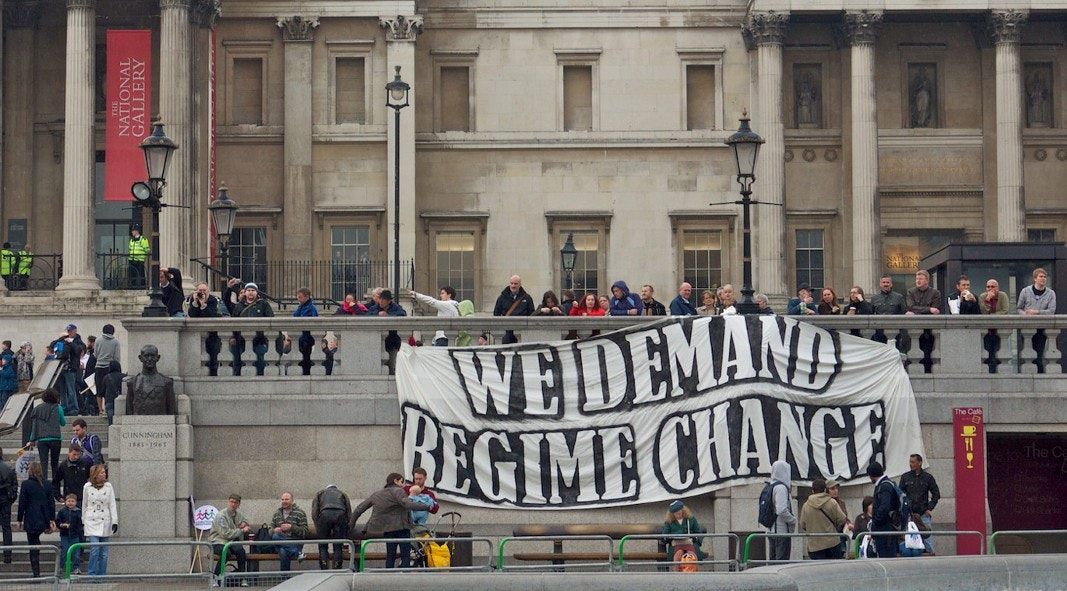
Limiting a movement to specific demands stifles diversity and sets it up for failure
The conventional wisdom is that movements need core appeals to cohere: without appeals, movements will be fragmented, short-lived, and ineffective.
However, people with different demands, or those with no demands at all, can still work together to build collective strength. If we understand movements as spaces of dialogue, coordination and action, it is easy to imagine how a movement can advance various agendas. The more horizontal the movement of the structure, the more it can accommodate different goals.
In fact, almost all movements are plagued by internal conflicts over how to structure themselves and prioritize their goals. Demands are usually generated by the faction in the movement that has the greatest investment in the current system. The fundamental idea is to use power games to satisfy their own needs and thereby defend the overall stability of the current system. This is to enable those who want to establish power independently rather than simply A means by which a person who petitions the authorities without permission loses legitimacy. This misunderstands real political disagreements as mere disorganization and genuine opposition to governance structures as political naivety.
Forcing a diverse movement to pare its agenda down to a few specific demands inevitably consolidates power in the hands of a few . Because who gets to decide which demands get priority? Often, it’s those who hold disproportionate power elsewhere in this society: wealthy, majority-ethnic professionals who are well versed in the workings of institutional power and corporate media. People who have been marginalized in society are marginalized again in their own resistance movements, in the name of "efficacy."
However, this rarely makes exercise more effective. A movement that has room for difference can grow; a movement that is premised on a compact of agreement. A movement with a variety of agendas is flexible and unpredictable; it is difficult to bribe it and trick participants into giving up their autonomy in exchange for some concessions . A movement that advocates conformity is bound to alienate one group after another because it subordinates its needs and concerns.
A movement that incorporates a variety of perspectives and critiques can develop a more comprehensive and multifaceted strategy than a single-issue campaign. Forcing everyone to support a set of demands is a bad strategy: even if it works, it won't work.
Limiting a movement to specific demands undermines its longevity
Nowadays, as history develops faster and faster, demands are often outdated before the movement even begins. For example, in response to the murder of Michael Brown, reformists demanded that police officers wear body cameras—but before the movement could fully take off, a grand jury announced that the officers who murdered Eric Garner would not be tried, despite the Garner's murder was entirely caught on camera.
- On why body cameras are stupid " Are body cameras counterproductive?" This kind of thing is starting to become popular in China 》
Movements premised on concrete demands collapse once those demands are overtaken by events, while the problems they seek to solve remain . Even from a reformist perspective, it would make more sense to build movements around the issues they address, rather than any particular demands.
Limiting a movement to specific demands can give the illusion that there are simple solutions to problems that are actually extremely complex.
"Okay, you have a lot of complaints - who doesn't? But tell us, what is your proposed solution?" (as in the Chinese Internet buzzword "You can do it, you can do it")
The request for specific details is understandable. Simply venting is useless, the point is to change the world.
But meaningful change requires much more than any minor tweaks authorities might readily grant. When we speak as if the problems we face have simple solutions, rushing to appear to be no less “real” than government policy experts, we set ourselves up for failure, whether or not our demands are approved. Until we develop the collective ability to address the root causes of the problem, this will only lead to disappointment and apathy.
Especially for those of us who believe that the fundamental problem lies in the unequal distribution of power and agency in society, rather than the need for policy adjustments of one kind or another, promising simple remedies in vain to legitimize oneself is a major mistake . The rebel’s job is not to come up with ready-made solutions for the masses to applaud from the sidelines; rather, the rebel’s challenge is to create spaces where solutions can be discussed and implemented directly on an ongoing and collective basis.
Rather than proposing quick solutions, rebels should spread new practices. We don’t need a blueprint, we need a starting point.
The prerequisite for making a demand is that your opponent can grant you what you want.
On the contrary, even if the rulers have a heart of gold, it is questionable whether the current system can give the rebels most of what they want. No corporate initiative can stop climate change; no government agency can stop mass surveillance of people; no police force can dismantle white privilege. Only NGO organizers still cling to the illusion that these things are possible – probably because their jobs depend on it.
A movement strong enough can mount a real fight against industrial pollution, state surveillance, and institutionalized white supremacy, but only if it goes beyond petitioning.
Demand-based politics limits the entire scope of change to the narrow aspects of reforms that can be made within the logic of the existing order, excluding the rebels and forever postponing real change beyond the horizon.
It is useless to ask the authorities for things that they cannot, can and will not agree to. In particular, rebels should not give those in power an excuse to gain more power than they already have, on the pretext that they need this power “to satisfy the demands of the rebels.”
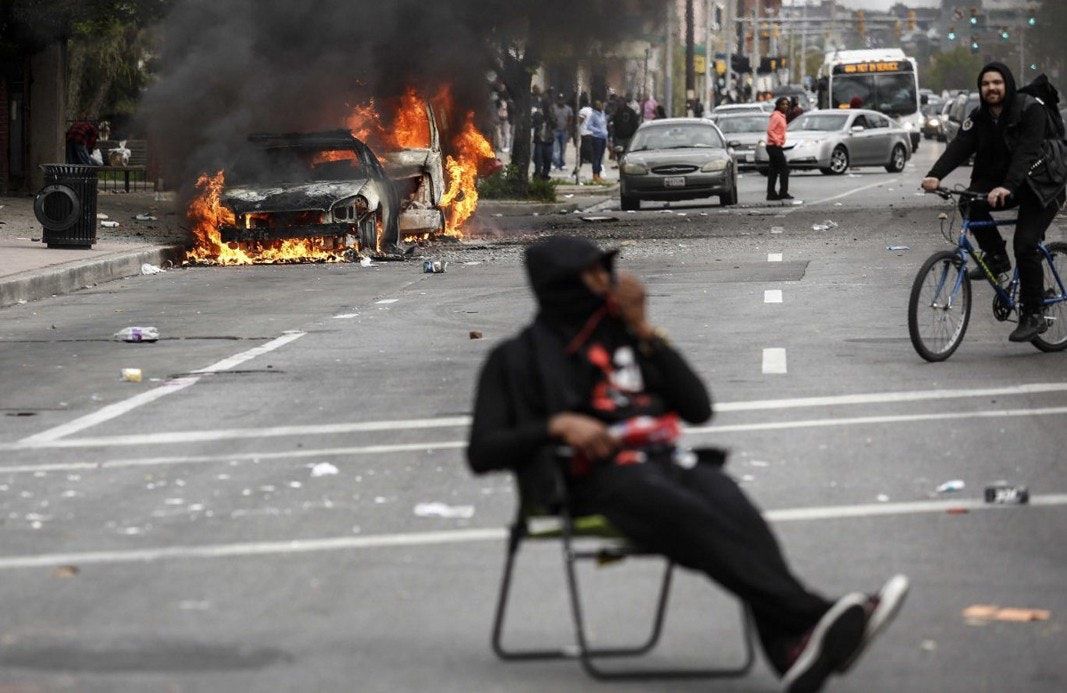
Appealing to the authorities only legitimizes their power and concentrates it in their hands
It's a time-honored tradition for nonprofits and left-wing coalitions to make demands they know will never be granted: Don't invade Iraq, save the people instead of the banks, make the police stop killing people... In return for brief hearings, role-playing bureaucrats downplayed their politics and tried to keep less complaining colleagues in line. This is what they call pragmatism.
Such efforts may not achieve their explicit purposes, but they do achieve something: they construct a narrative in which existing institutions are the only conceivable protagonists of change.
This, in turn, paves the way for more futile advocacy and more campaign scenes in which new candidates for office hoodwink young idealists and create more The years of paralysis paved the way for ordinary people to only imagine gaining their power through the mediation of a political party or organization. Rewind the tape and play it again.
True self-determination is not something that any authority can give us. We must develop self-determination by relying on our own agency, establishing ourselves as protagonists of history, placing ourselves at the center of the narrative.
Raising demands too early will only limit the scope of the movement in advance and close off possible areas.
In the early stages of a movement, when participants have not yet had a chance to feel their collective power, they may not realize just how radical the changes they want will be. Making demands at this point in a movement’s trajectory can hinder the movement’s growth and limit the ambition and imagination of those involved.
Likewise, setting a precedent for narrowing or watering down its goals at the outset will only increase the likelihood of this happening again and again.
Imagine if the Occupy movement had achieved concrete demands at the outset – would it still have become an open space in which so many people could meet, develop their own analysis, and become radicalized? Or will it end up being a single protest camp focused solely on corporate personalities, budget cuts, and perhaps the Federal Reserve? A movement's goals should ideally evolve as the movement itself develops, in direct proportion to its capabilities.
Making demands establishes some individuals as representatives of the movement and establishes an internal hierarchy that gives them incentives to control other participants
In practice, uniting a movement behind specific demands often means appointing spokespersons to negotiate on behalf of the movement. Even if these spokespersons are “democratically” selected on the basis of their commitment and experience, by virtue of playing this role they will involuntarily have interests that differ from those of the other actors.
To maintain their credibility as negotiators, spokespeople must be able to appease or isolate anyone unwilling to cooperate with the bargain they reach. This gives aspiring leaders an incentive to prove they can take control within the movement in the hope of earning a seat at the table.
Those brave people who had initially gained influence for the movement through uncompromising action suddenly found themselves being told what to do by so-called professional activists who had joined later, or who were denying that they were part of the movement. This dramatic situation played out in Ferguson in August 2014, where locals who got the movement off the ground by standing up to the police were vilified by politicians and public figures as “outsiders exploiting the movement for criminal activity.” The opposite is true: outsiders are trying to hijack this glorious resistance movement in order to re-legitimize the institutions of power.
In the long run, such appeasement can only contribute to the demise of a movement. This explains the ambiguous relationship between most leaders and the movements they represent: in order to be useful to the authorities, they must be able to subdue their teammates, but if the movement does not pose some kind of threat, their services are not needed at all . Such characters are therefore often characterized by a strange mixture of combative rhetoric and practical obstructionism: they must ride the wave but also hold it back.
Sometimes the worst thing that can happen to a movement is that its demands are met
The role of reforms is to stabilize and maintain the status quo, stifling the momentum of social movements and ensuring that more radical changes do not occur . It's easy to splinter a powerful movement by promising small demands, persuading less committed participants to go home, or turning a blind eye to repression against those who refuse to compromise. This small demand was granted only because the authorities believed it was the best way to avoid larger changes.
In times of turmoil, when everything is up for grabs, one way to defuse an emerging rebellion is to grant its demands before it escalates. Sometimes it even looks like a real victory — like in Slovenia in 2013, when two months of protests toppled the ruling government. But this ended the uprising once and for all before addressing the systemic problems that sparked it, problems that were far worse than any politician had in office. While the demonstrators were still in a daze about their success, another government came into power - and everything was back to the way it was before.
During the build-up to Egypt's 2011 revolution, Mubarak repeatedly raised the demands of the demonstrators days earlier; but as the situation on the streets intensified, the protesters became increasingly recalcitrant. If Mubarak had come forward more and earlier, he might still be in power today. In fact, the Egyptian revolution ultimately failed, not because it had too many demands, but on the contrary, because it did not go far enough: in removing the dictator from office but leaving behind the army and the infrastructure of the deep state, the revolutionaries gave The new autocrats left the door open to consolidate power.
For the revolution to succeed, protesters must dismantle the very fabric of the regime itself while people are still on the streets and the window of possibility is still open. “People Demand the Regime’s Fall” provided a convenient platform for much of Egypt to unite, but it did not prepare them to confront the regime that followed.
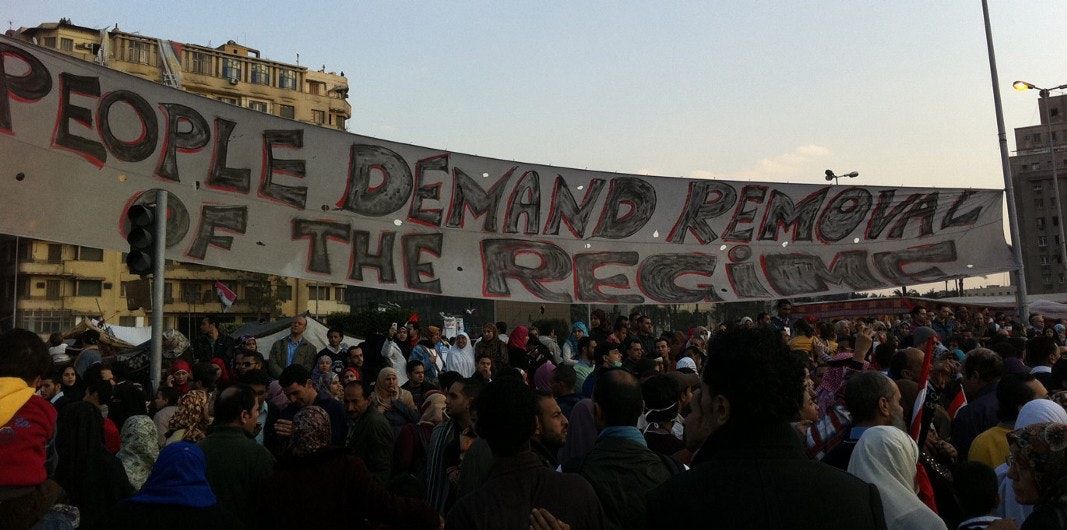
In Brazil in 2013, the MPL (Movimento Passe Livre) helped catalyze large-scale protests against rising public transport costs; this is the only example of a movement in recent years that has successfully met its demands. Millions took to the streets and the twenty-cent fare increase was dropped. Activists in Brazil have written and spoken about the importance of formulating specific and achievable demands in order to build momentum through incremental victories. Next, they hope to force the government to make transportation free.
Why was their campaign against price increases successful? At the time, Brazil was one of the few countries in the world with an economy on the rise; it benefited from the global economic crisis, attracting investment funds from volatile North American markets. Meanwhile elsewhere – in Greece, Spain, and even the United States – governments are no less desperate to wall off and beaten than anti-austerity protesters, and would be unlikely to comply with their demands even if they wanted to. It is not for lack of concrete demands that other movements have been unable to secure such concessions.
However, less than half a year later, when the streets were empty and the police had restored their powers, the Brazilian government rolled out a series of bigger price increases , this time even bigger. MPL had to start protest again. It turns out that you can’t achieve your goals with one change .
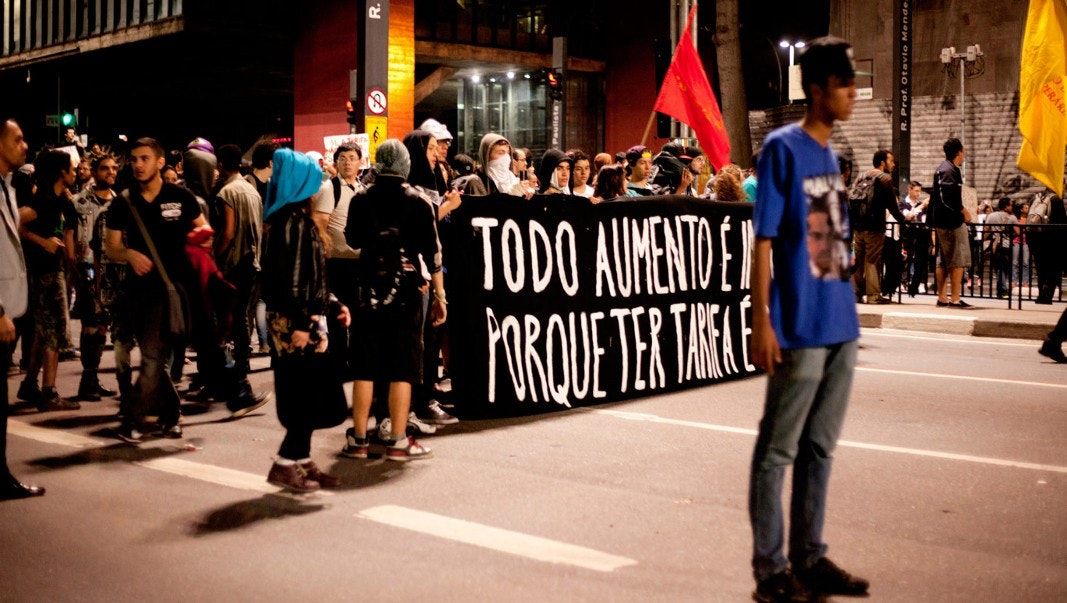
If you want to win concessions, aim beyond the target
Even if all you want is some minor tweaks to the status quo, embarking on structural change is still a smarter strategy.
Many times, in order to achieve small, specific goals, protesters must set their sights higher. Those who refused to compromise presented the authorities with an undesirable alternative, rather than giving the reformists an opportunity to exploit it.
There will always be people willing to put themselves in the negotiator's shoes—but the more people who say no, the stronger the negotiator's bargaining position becomes. The classic reference point here is the relationship between Martin Luther King Jr. and Malcolm X: the authorities would not have had such an incentive to negotiate with Dr. King were it not for the implicit threat of Malcolm X.
For those of us who want truly radical change, it does little good to downplay our desire for public consumption. The Overton Window—the range of possibilities considered politically feasible—is determined not by those at the so-called center of the political spectrum, but by outliers.
The wider the distribution of options, the more territory opens up. Others may not immediately join you on the fringe, but knowing someone is willing to stick to this agenda may embolden them to take action themselves.
From a purely pragmatic perspective, those who embrace diverse tactics, even when achieving small victories, will outperform those who seek to limit themselves and others, rejecting and refusing to be limited.
On the other hand, from a long-term strategic perspective, what matters most is not whether the rebels achieved any particular immediate outcome, but rather: how each engagement positioned itself for the next round. If the rebels endlessly postpone the questions they really want to ask, the right moment will never come.
We don't just have to win concessions, we have to develop capabilities.
Achieving *no demands* does not mean giving up space for political discourse
Perhaps the most compelling argument in favor of making specific demands is that if protesters don’t make them, someone else will – hijacking our organizing momentum to advance their own agendas. What if because we are unable to make demands, people end up rallying around a liberal reformist platform – or, as in much of Europe today, around a right-wing nationalist agenda?
This, of course, illustrates the dangers of not articulating our vision for reform to those with whom we share the streets. It would be a mistake to escalate tactics without communicating our goals, as if all confrontation must be in the direction of liberation. In Ukraine, where the same tensions and momentum that gave rise to the Arab Spring and Occupy movements also gave rise to nationalist revolutions and civil wars, we saw that even fascists were able to appropriate our organizational and tactical models for their own the goal of.
But this is hardly a reason to lodge a complaint with the authorities. On the contrary, if we always hide our radical aspirations within a common reformist front, fearing alienating ordinary people, then those who are impatient for real change will be more likely to run towards the nationalists and fascists embrace, because only they would openly seek to challenge the status quo.
Protesters need to be clear about what they want and how they intend to achieve it. Not to impose our methodology on everyone, like autocratic organizers would, by no means, but to provide an opportunity and an example to everyone else who is looking for a way forward. Not to make a demand, but because it is the exact opposite of a demand: we want self-determination, which no one can give us .
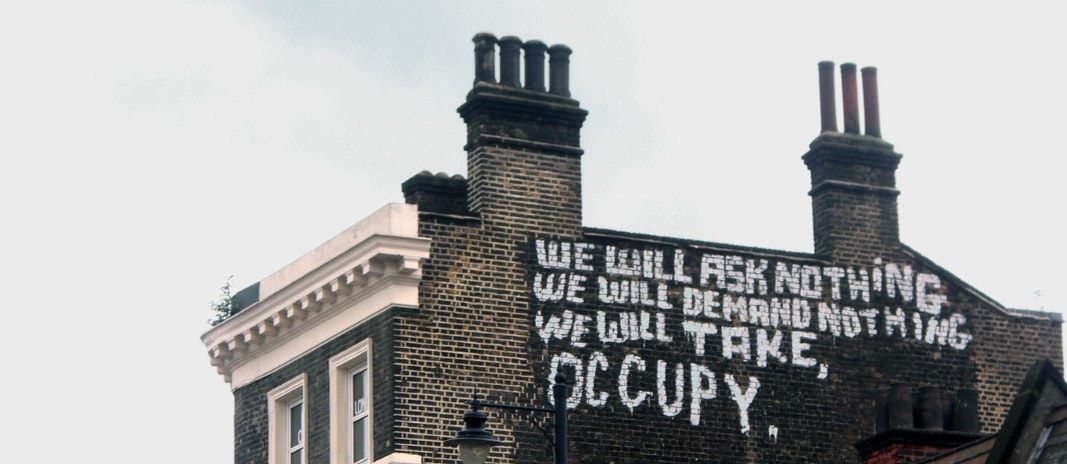
If it is not a demand, then what is it?
The way you analyze, the way you organize, the way you fight – these should be self-evident. They should serve as an invitation to join you in doing politics in a different way, based on direct action rather than petitions. People in Ferguson and Baltimore responded to the murders of Michael Brown and Freddie Gray with more powerful solutions to the problem of police brutality than decades of begging for community oversight.
By seizing space and redistributing resources, rebels circumvent meaningless circuitous mechanisms of representation. If a message must be sent to the authorities, let it be this single, simple demand: Don't mess with us.
Instead of making demands, let’s start setting goals. The difference is that we have to set goals according to our own conditions, at our own pace, and when opportunities arise. They need not be framed in the logic of those in power, nor do their realization depend on the good intentions of the authorities. The essence of reformism is that even if you win something, you don't retain control over it.
Rebels should develop their own agency, independent of the existing system. This is a long-term project and an urgent one.
In the process of pursuing and achieving their goals, rebels develop the ability to seek more and more ambitious goals. This is in stark contrast to the way reformist movements tend to collapse when their demands are realized or prove impractical.
Your movement will be stronger if a resistance movement can accommodate a variety of goals, as long as those goals don't conflict openly. When we understand each other's goals, it's possible to determine where collaboration makes sense and where it doesn't — and that clarity doesn't come from lining up in support of a lowest common denominator appeal.
From this vantage point, you can see that choosing not to raise demands is not necessarily a sign of political immaturity. On the contrary, it can be a shrewd strategy for refusing to fall into the trap of disability that characterized the previous generation. Today’s rebels should learn to develop their own power outside the cages and queues of representational politics, outside the politics of demands. ⚪️
Like my work? Don't forget to support and clap, let me know that you are with me on the road of creation. Keep this enthusiasm together!

- Author
- More